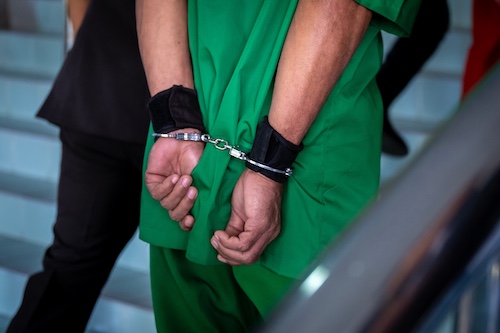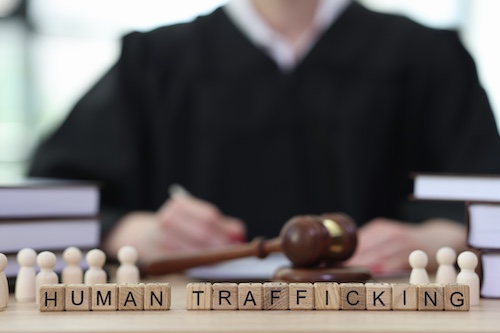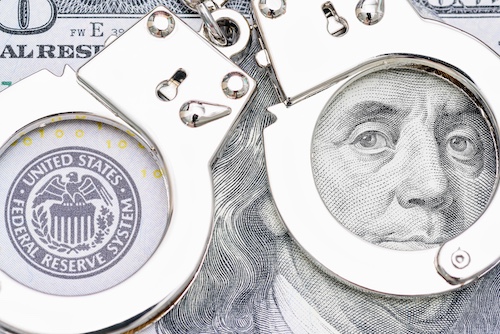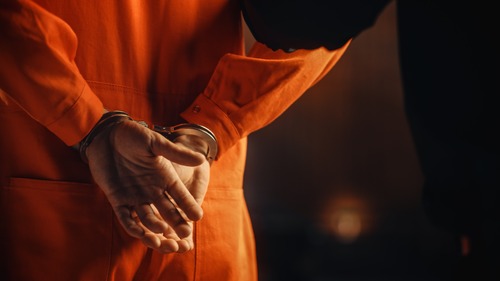What to Expect When Facing Federal Human Trafficking Charges
Human trafficking charges are among the most aggressively prosecuted federal crimes, carrying severe penalties and long-term consequences. Whether the case involves allegations of sex trafficking, forced labor, or exploitation of minors, the legal system treats these offenses with zero tolerance. Federal law enforcement agencies move quickly, and defendants face public scrutiny from the start.
In this blog, we explain how federal human trafficking charges work, common misconceptions, potential penalties under federal and Texas law, and key legal strategies you can use with the help of an experienced federal crimes lawyer.
Understanding Federal Human Trafficking Charges
Federal law treats human trafficking charges as serious crimes with severe penalties.
Definition of Human Trafficking Under Federal Law
Federal human trafficking is defined under 18 U.S.C. §§ 1589 to 1591 and the Trafficking Victims Protection Act. It involves recruiting, transporting, or holding a person for labor or a commercial sex act through force, fraud, or coercion. If the person involved is younger than 18, prosecutors do not need to prove coercion in sex trafficking cases.
How Human Trafficking Occurs
Human trafficking occurs in both public and private settings. It includes situations like labor on farms, work in restaurants, or exploitation in massage parlors. Victims are often misled with false promises or are forced to work under threats or physical control. Traffickers may be employers, acquaintances, or even family members.
Key Elements in a Federal Human Trafficking Case
To support human trafficking charges, the government must prove the use of force, fraud, or coercion, or show that the victim was a minor involved in a commercial sex act. Evidence often includes financial records, text messages, travel details, and statements from the alleged victims. Federal law enforcement agencies lead these investigations.
Agencies and Laws Involved
Federal cases involve agencies such as the FBI, Department of Homeland Security, and ICE. These groups investigate and bring charges under laws like the Trafficking Victims Protection Act. Victims may receive support through the National Human Trafficking Hotline or obtain continued presence status to remain in the country during the investigation.
Common Misconceptions About Human Trafficking Cases
Many people misunderstand how human trafficking occurs and what actions can lead to federal human trafficking charges.
Trafficking Does Not Require Movement Across Borders
A common belief is that trafficking always involves smuggling people across borders. This is incorrect. Human trafficking can occur without any transportation at all. It focuses on the use of force, fraud, or coercion to exploit a person for labor or commercial sex, even within a single location.
Victims Are Not Always Physically Restrained
Some think that human trafficking victims are always held by physical force. In reality, traffickers often use threats, psychological pressure, or false promises to control victims. Debt bondage, isolation, and fear of law enforcement are common tactics.
Traffickers Are Not Always Strangers
People often assume traffickers are unknown criminals. In many human trafficking cases, the trafficker is someone the victim knows. This can include family members, romantic partners, or employers. Familiarity can make it harder for victims to escape or report the abuse.
Minors Cannot Consent to Commercial Sex
Another misconception is that minors can choose to engage in commercial sex. Under federal law, a person younger than 18 involved in a commercial sex act is automatically considered a victim of sex trafficking. No proof of coercion is required for prosecution in these cases.
Labor Trafficking Often Goes Unnoticed
Labor trafficking is sometimes overlooked because it does not involve obvious physical abuse. Victims may be forced to perform labor or services under threats, unpaid wages, or illegal working conditions. These situations can occur in restaurants, homes, farms, or factories.
Law Enforcement May Misidentify Victims
In some cases, law enforcement officers arrest victims instead of identifying them as trafficking victims. Fear of deportation or prosecution can prevent victims from seeking immediate assistance. Training and victim-centered approaches help reduce this risk.
Anyone Can Be Accused
Some believe that only organized criminals face human trafficking charges. In truth, accusations can arise from misunderstandings, personal disputes, or false statements. Individuals involved in employment, travel, or personal relationships can face serious legal consequences if coercion is alleged.
Legal Consequences: Severe Penalties Under Federal and Texas Law
Human trafficking charges carry serious penalties under both federal law and Texas state law.
Federal Penalties for Human Trafficking
Under 18 U.S.C. § 1591 and related statutes, federal penalties for human trafficking are severe. A conviction for sex trafficking involving a person younger than 18 can result in a minimum of 10 years to life in federal prison. If force, fraud, or coercion is involved, the penalties increase. Additional years may be added if the case includes serious bodily injury, multiple victims, or death.
Texas State Penalties for Human Trafficking
Texas law also imposes harsh sentences under Texas Penal Code § 20A.02. A person convicted of trafficking another person for forced labor or commercial sex can face first-degree felony charges. Sentences can range from 25 years to life in prison if the victim is a child or if coercion was used. Texas courts may also require defendants to register as sex offenders and pay restitution to victims.
Restitution and Additional Consequences
Federal courts can order convicted individuals to pay restitution for the full amount of losses suffered by the victims. This includes medical care, housing, and lost income. Convictions may also lead to forfeiture of assets, permanent loss of civil rights, and immigration consequences. A federal crimes attorney can help address these risks in court.
Collateral Impact of a Conviction
A conviction for human trafficking affects more than just prison time. It can destroy reputations, cut off access to employment, and impact family life. Individuals may face restrictions on housing, travel, and public benefits. These penalties apply whether the case involves sex trafficking, labor trafficking, or related offenses.
Key Legal Strategies for Defending Human Trafficking Charges
Defending against human trafficking charges requires clear strategies based on law, facts, and the specific conduct alleged.
Challenging the Use of Force, Fraud, or Coercion
Federal prosecutors must prove that the accused used force, fraud, or coercion to compel labor or commercial sex. A strong defense questions whether any such methods were used. If the prosecution cannot show clear evidence of threats, deception, or physical control, the charges may not hold.
Arguing Lack of Knowledge or Intent
In many cases, the defense may argue that the accused did not know their actions were unlawful or that they did not intend to exploit anyone. This strategy applies when someone is unaware of a person’s age in sex trafficking cases or when a business relationship is mistaken for exploitation.
Disputing Victim Status and Credibility
The prosecution often relies on statements from individuals identified as victims. A federal crimes attorney may examine inconsistencies in those statements, motives to lie, or a lack of physical or financial evidence. Not every person claiming to be a trafficking victim meets the legal definition under federal law.
Suppressing Unlawfully Collected Evidence
If federal law enforcement obtained evidence without a proper warrant or violated constitutional rights, the defense can seek to suppress that evidence. This includes electronic messages, financial data, or recorded conversations. Suppression can weaken the prosecution’s case significantly.
Showing No Involvement in Commercial Sex or Labor Trafficking
If the defendant did not recruit, transport, or benefit from forced labor or a commercial sex act, the charges may not apply. This strategy focuses on separating the accused from the acts committed by others. It is common in cases where multiple people are involved or where the accused had a limited role.
Addressing Misinterpretation by Law Enforcement
Sometimes law enforcement officers make arrests based on false assumptions or incomplete facts. A federal crimes lawyer can highlight errors in the investigation, including misidentifying voluntary acts as coercion or misreading communications. Clarifying these facts can lead to a dismissal or reduced charges.
Consult With an Experienced Federal Crimes Attorney ASAP!
If you are facing federal human trafficking charges, time is critical. These cases move fast, and the penalties can change your life forever. You need a clear legal strategy and a strong defense led by someone who understands the federal system. Our team at Cowboy Law Group has the experience and focus to take on serious federal cases.
Contact us at 832-326-2932 for a free case review today!







